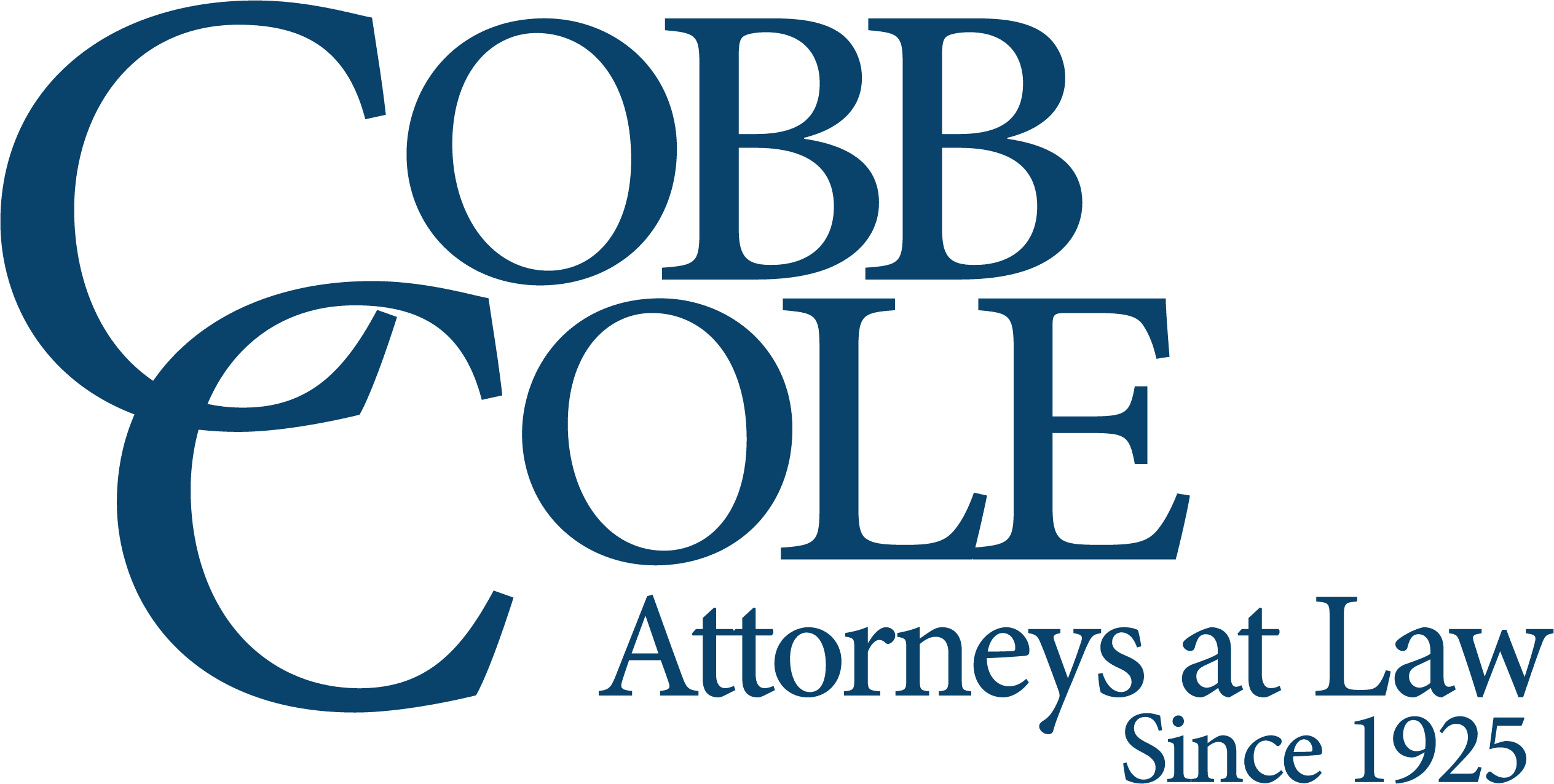Brownfields are abandoned or underutilized properties where the presence of hazardous substances, pollutants, or contaminants may complicate their redevelopment or reuse. Florida’s Brownfields Redevelopment Act was established to promote the cleanup and reuse of the state’s brownfield sites.
The program provides economic incentives, liability protections, and streamlined processes to encourage private and public investment in revitalizing contaminated properties, fostering economic growth, environmental improvement, and community revitalization.
Cobb Cole’s environmental attorneys provide advice and representation on environmental laws and regulations, including brownfield redevelopment. Attorney Michael Sznapstajler specializes in representing developers, businesses, local governments, and non-profit organizations with the redevelopment of Brownfield sites under Florida’s Brownfields Redevelopment Program. A former-President of the Florida Brownfields Association, he regularly assists clients with negotiations, cleanup management, and conditional closures.
A Brief Overview of the Florida Brownfields Redevelopment Program
Established in 1997 by the Florida Legislature, the Florida Brownfields Redevelopment Program has grown into a proven, results-oriented program that has transformed how communities address and manage contaminated properties. A party can enter the program by having a property designated by a local government as a Brownfield Area and signing a voluntary cleanup agreement known as a Brownfield Site Rehabilitation Agreement with the Florida Department of Environmental Protection.
After entering the Brownfields Program, a party can apply for or receive a number of incentives, including:
- Liability protection against certain state and third-party claims for cleanup and property damages
- Voluntary Cleanup Tax Credits, which are tax credits awarded for work that is integral to the cleanup of the brownfield site. These tax credits can be transferred once, which allows entities without Florida tax liability to receive payment in exchange for selling the tax credits. During the 2023 legislative session, the Florida Legislature increased the amount of voluntary cleanup tax credits from $10 million per year to $35 million per year.
- A tax refund for job creation, which provides a tax refund for up to $2,000 per new full-time equivalent job created at the brownfield site.
- Expedited technical review by the Florida Department of Environmental Protection
According to FDEP’s 2022 Florida Brownfields Redevelopment Program Annual Report, 196 contaminated sites have been cleaned up and approximately 89,567 confirmed and projected direct and indirect jobs have been attributed to the program since its inception in 1997.
A separate and distinct EPA Brownfields Program provides grants and loans to local governments to assist in the assessment, cleanup, and redevelopment of brownfields.
Why Developing Brownfields is Important
Cleaning up and reinvesting in brownfield properties utilizes existing infrastructure, increases local tax bases, facilitates job growth, and takes development pressures off undeveloped, open land.
Brownfield redevelopment offers significant environmental, economic, and social benefits, giving stakeholders the opportunity to transform contaminated and underutilized sites into productive and sustainable assets that contribute positively to communities and the region’s well-being.
- Land Conservation. Redeveloping brownfields helps conserve open spaces and prevents urban sprawl, which can lead to the destruction of natural habitats and agricultural land.
- Environmental Remediation. Brownfields often experience contamination from previous commercial or industrial activities. Redeveloping these sites improves the surrounding area’s soil, water, and air quality, creating a healthier environment for humans and ecosystems.
- Economic Revitalization. Brownfield redevelopment helps revitalize blighted areas and frequently serves as a catalyst for economic growth and job creation, transforming unused or abandoned properties into productive assets that attract businesses, increase property values, and stimulate local economies.
- Infrastructure and Services. Many brownfield sites are in urban or suburban areas with existing infrastructure and services. Redeveloping them allows for the efficient use of already available resources such as utilities, public facilities, and transportation networks, reducing the need for costly expansions or new infrastructure development.
- Community Reinvestment. Brownfield redevelopment can enhance a community’s quality of life, creating new housing opportunities, retail and recreational spaces, and local amenities that meet residents’ needs.
- Sustainable Development. By promoting the reuse of existing resources and reducing the need for developing pristine land, brownfield redevelopment aligns with sustainable land use principles by encouraging compact, walkable communities that support public transportation and reduce automobile dependence.
- Social Equity and Environmental Justice. Brownfield redevelopment addresses environmental justice concerns by transforming blighted areas which have historically been disproportionately affected by pollution and neglect. It provides opportunities for equitable access to housing, jobs, and local amenities, helping to bridge socioeconomic disparities.
How an Environmental Attorney Can Assist Clients in Brownfields Matters
Local governments in Florida have designated approximately 570 brownfield areas, which they hope to see cleaned up and redeveloped. More than 480 properties within brownfield areas have entered the Brownfields Program, and more than 200 of these sites have reached regulatory closure.
An environmental attorney can help parties interested in the redevelopment of a brownfield in several ways.
- Guiding clients through the process of environmental assessments to determine the level and extent of contamination on a site. This can include assessing potential risks, evaluating the need for remediation, and identifying applicable environmental regulations, requirements, and incentives.
- Our environmental lawyers are well-versed in the complex web of federal, state, and local environmental regulations. They help clients navigate the regulatory landscape and ensure compliance with relevant laws, permits, and approvals necessary for brownfield redevelopment.
- If contamination is found on a brownfield site, an environmental lawyer can assist in developing and implementing a remediation and cleanup plan. They work with environmental consultants, engineers, and other experts to devise appropriate strategies for cleaning up the site, mitigating risks, and ensuring compliance with regulatory standards.
- Brownfield redevelopment often involves potential liability issues, including determining the responsible parties and allocating liability for contamination. An environmental lawyer helps assess liability, negotiate settlements, and advocate for a client’s interests in any legal proceedings or negotiations.
- Qualified environmental lawyers help clients explore financing options and incentives available for brownfield redevelopment, providing guidance on accessing grants, loans, tax incentives, and other financial mechanisms aimed at facilitating the cleanup and reuse of sites.
- Negotiations with various stakeholders, such as property owners, developers, regulators, and community groups are often necessary during the brownfield redevelopment process. Environmental lawyers represent their client’s interests in these negotiations, help draft contracts, and ensure any drafted agreements adequately protect their rights and obligations.
- Many brownfield redevelopment projects involve engagement with local communities that want their concerns heard and addressed. A skilled environmental lawyer assists clients in developing effective public relations strategies, conducting community outreach, and addressing environmental justice issues related to the project.
The specific services you need from an environmental attorney can vary depending on the unique circumstances of your brownfield project. Consulting with a knowledgeable environmental lawyer at Cobb Cole is the best way to understand how they can help with your individual needs.
Cobb Cole: Comprehensive Environmental Legal Services
The environmental legal team at Cobb Cole has established legal precedents in various legal matters, including government impact fees, user fees, and environmental regulation. They have deep knowledge of Florida’s Brownfields Redevelopment Program and have successfully assisted clients in navigating its intricacies.
For more information about Florida’s Brownfields Redevelopment Program or to learn more about investing in brownfield properties, contact Cobb Cole today or call partner Michael Sznapstajler at 386-323-9222.

